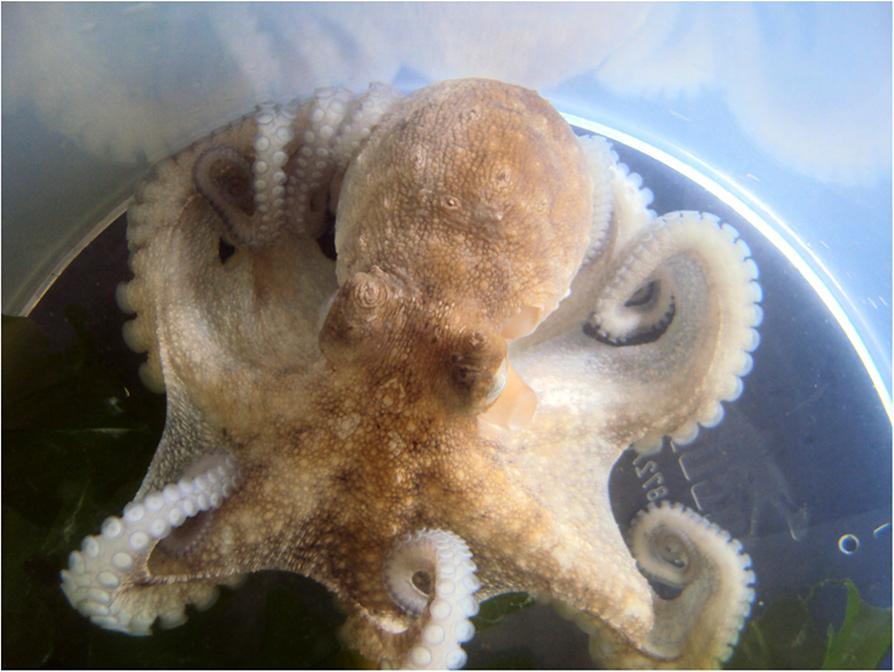Several species of octopus are considered venomous due to toxins present in the glands connected to their “beak”, which may be associated with hunt and kill of prey. Herein, we report an accident involving a common octopus (Octopus vulgaris) that injured an instructor during a practical biology lesson and provoked an inflamed infiltrated plaque on the hand of the victim. The lesion was present for about three weeks and was treated with cold compresses and anti-inflammatory drugs. It was healed ten days after leaving a hyperchromic macule at the bite site. The probable cause of the severe inflammation was the digestive enzymes of the glands and not the neurotoxins of the venom.
Octopuses; Venomous animals; Aquatic animals; Venoms; Poisoning; Digestive enzymes


